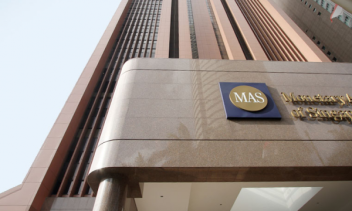In Focus
Labour market to deteriorate further as weak growth dampens employment demand: MAS
Demand will be "permanently" lower.
Labour market to deteriorate further as weak growth dampens employment demand: MAS
Demand will be "permanently" lower.
Local property investment sales tumble as developers turn to overseas deals
Investment sales hit a 7-year low in Q1.
Record-breaking deflation grips Singapore as housing, transport costs slide
Weak growth and low oil prices are also culprits. Singapore’s headline consumer price index (CPI) has been in the red for the past 17 months—the longest stretch of deflation ever recorded in the city-state, where consumer costs are kept in check by a potent combination of government policy and global price movements. Analysts note that a key reason behind Singapore’s negative inflation figure are weak transport and accommodation costs. Housing costs are kept muted by property cooling measures, while private road transport costs are on a downward slide due to the city-state’s unique Certificate of Entitlement (COE) system. “With the excess supply in housing stock and the associated downward pressure on rentals, the housing CPI index may continue to fall. In addition, the Land Transport Authority has announced an increase in the quota for the certificates of entitlement for vehicle ownership. This means a possible decline in private transport costs. Coupled with low energy prices, a significant portion of the CPI basket will remain in the negative,” DBS Vickers said in a report. Apart from domestic policies, weak global growth is also acting as a drag on local inflation. “The growth slowdown has further compounded the disinflationary pressure. And this will likely become more pronounced in the coming months with the overhanging risk of a technical recession,” DBS added. Although this is the longest deflationary period ever recorded, analysts say that the current downtrend has key differences from previous periods of deflation. “Even though headline prices had been contracting for 17 consecutive months, the longest on record, we hesitate to label the current situation as a “deflationary spiral”, as the decline in prices were largely due to administrative measures applied on accommodation and private road transport costs,” said UOB economist Francis Tan. A key difference is that unlike during the 2008/09 financial crisis, where core inflation fell for 9 consecutive months due to a lack of consumer demand as well as corporate/business price-cutting in the aftermath of the global financial crisis, core inflation remains positive at present. “[During] the current period of slower economic growth, Singapore’s core inflation had not contracted at all. Indeed, with global consumer price actions remaining subdued due to the downward pressures on the prices of major commodities as well as manufactured products, Singapore, being a price-taker, will continue to see weak inflation trend as we go into 2016,” Tan noted. The Monetary Authority of Singapore had also projected lower trends in both the headline and core inflation for 2016. “Despite the fact that core inflation is expected to remain in positive territory, it is likely to fall below expectations and below the central bank’s target of 2.0% in the medium-term,” DBS noted.
Steep price cuts await OCR homes as number of unsold units mount
Almost 10,000 mass-market condos are still unsold.
Singapore banks unable to shake off default risks even as oil prices recover
Support services firms are still in deep water.
Auction sales to jump as desperate owners slash asking prices
Residential homes will form bulk of listings.
Here’s why there’s hope yet for Singapore property developers
New, well-located launches are key.
Singapore dollar weakness feared to dent appetite for overseas trips
The outbound travel market grew 6.7% in Q1.
What's the secret behind extremely strong home sales in March?
Policymakers played a key role.
The tourists are finally back, but it's not yet time to celebrate: analysts
Hoteliers are reeling from a massive room glut.
A wave of privatisations is about to hit the SGX: report
Guess who the most likely candidates are.
Here’s why analysts think the MAS will give in to easing the SGD rates
Weak oil prices could trigger another easing, says DBS.
Expect more privatisations for Singapore firms, say analysts
O&M, tech, and property firms are all looking to privatise.
Banks’ job cuts cast a pall over CBD rents
Can startups save the day?
No turnaround on the horizon for Singapore prime property prices
Though the market may see more activity in the future.
Prime mall rents continue to slide as luxury shoppers vanish
Store closures might spike this year.
Is Singapore productivity on a path to recovery?
Sectors are struggling to generate additional value-add.



















 Advertise
Advertise


















